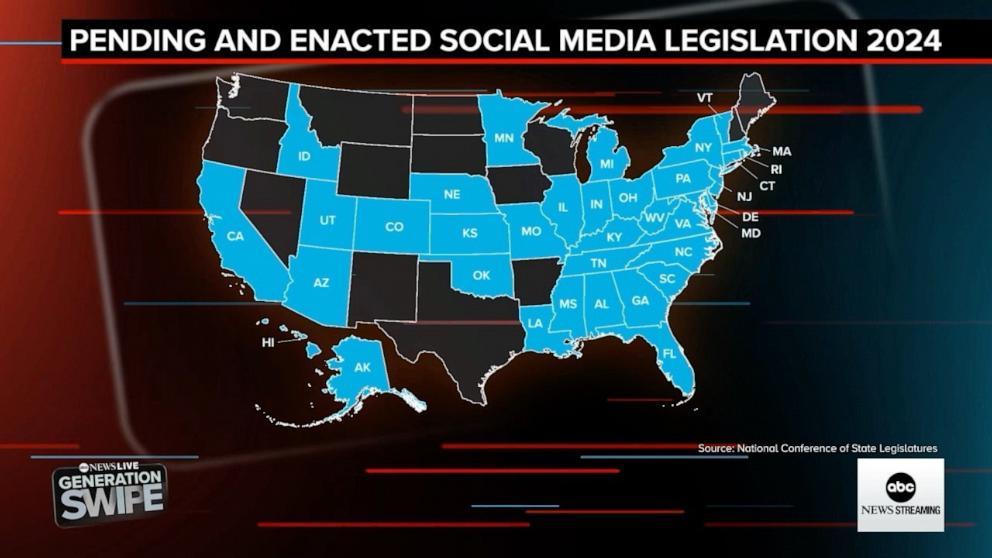Table of Contents
- Age Restrictions on Common Products Across Different States
- Understanding the Legal Reasons Behind Varying Age Limits
- How to Verify Age Restrictions in Your State Before Making a Purchase
- Tips for Businesses to Comply with State-Specific Age Regulations
- The Conclusion
Age Restrictions on Common Products Across Different States
Age restrictions on everyday products often fluctuate between states due to varying local laws and cultural norms. For instance, the legal age to purchase tobacco products was federally raised to 21 in the United States, but some states had already implemented this rule ahead of the federal mandate, while others adhered strictly after its enactment. Alcohol regulations also vary significantly; some states permit consumption at 18 for specific circumstances, whereas others enforce a strict minimum age of 21 across all alcoholic beverages. Even products like spray paint or certain over-the-counter medications may have age restrictions that differ from one jurisdiction to another.
Understanding these variations is crucial for consumers and retailers alike. Here are some common products with notable age restrictions that can differ state-by-state:
- Alcoholic Beverages: Age requirements can range from 18 to 21 years, with additional rules about public consumption and sales timing.
- Tobacco and Vaping Products: Though federally regulated at 21+, enforcement and penalties vary widely by state.
- Fireworks: Some states restrict sales to adults only, while others have relaxed or stringent bans altogether.
- Lottery Tickets: Age limits to purchase tickets may differ, typically centered around 18 or 21.
Understanding the Legal Reasons Behind Varying Age Limits
Age restrictions are often shaped by a complex interplay of federal guidelines, state-specific social values, and historical legal precedents. While federal laws establish baseline regulations-such as the minimum legal drinking age of 21-states have the authority to impose stricter or complementary rules based on local public health concerns, cultural norms, and political climates. For example, states with higher youth tobacco use rates may enforce a minimum purchase age beyond federal standards, aiming to curb early addiction. This decentralized approach allows each state to tailor regulations to its unique demographic and societal challenges.
Several legal factors contribute to this variation, including:
- State sovereignty: The constitutional principle that grants states power to legislate on matters not exclusively reserved for the federal government.
- Public safety priorities: States assess risks differently depending on regional patterns of youth behavior and health outcomes.
- Economic considerations: Local industries (like alcohol, tobacco, or cannabis) can influence age limits to balance business interests with regulatory responsibility.
- Judicial interpretations: Courts often play a crucial role in upholding or contesting specific age-related statutes, further influencing the landscape.
How to Verify Age Restrictions in Your State Before Making a Purchase
Before finalizing your purchase, it’s crucial to double-check the legal age requirements specific to your state. These restrictions can differ widely; what’s legal in one place might require additional proof elsewhere. Start by visiting official state government websites or trusted consumer protection portals, where age-related laws are clearly outlined. Many states also provide downloadable guides or FAQs about age limits tied to common products such as tobacco, alcohol, vaping devices, and even certain entertainment media. Don’t rely solely on store policies-state regulations take precedence and could impact your eligibility to buy.
When verifying age restrictions, consider the following steps for accurate and efficient confirmation:
- Check online databases: Use resources like your state’s department of health or alcohol and tobacco control board for up-to-date age laws.
- Contact retailers directly: Trusted sellers often know local laws well and can inform you about acceptable forms of ID and minimum ages.
- Review product-specific legislation: Some states differentiate between product categories, so the age restriction for alcohol may not be the same as for tobacco or vape products.
Tips for Businesses to Comply with State-Specific Age Regulations
When navigating the complex landscape of age restrictions that vary across states, businesses must first prioritize comprehensive research. This involves consulting official state websites, legal resources, and industry-specific compliance portals to keep up-to-date with the latest laws. It is crucial to implement clear internal policies that reflect the most restrictive regulations to avoid legal pitfalls in multiple jurisdictions. Establishing a routine review process ensures your team remains informed about any legislative changes that could impact your product sales or service offerings.
Practical steps to maintain compliance include:
- Training staff thoroughly on how to verify age accurately using accepted identification methods.
- Integrating age verification technology into both physical and online sales channels to minimize human error.
- Documenting compliance procedures and maintaining records of age verification for audit purposes.
- Consulting legal experts periodically to interpret ambiguous laws and implement necessary adjustments.
The Conclusion
In conclusion, understanding how age restrictions on products vary by state is essential for both consumers and businesses alike. While federal laws provide a baseline, state-specific regulations can differ significantly, impacting everything from purchasing tobacco and alcohol to accessing certain services. Staying informed about these nuances not only ensures compliance but also promotes responsible consumption. Whether you’re a resident, traveler, or retailer, keeping up with the evolving legal landscape will help you navigate age restrictions with confidence and clarity. Stay proactive, stay informed, and make smart decisions in every state you find yourself in.Check Our Other Blogs
- StunGun – Your Trusted Source for Stun Guns, Laws, and Self-Defense Tips
- PepperSprayLaws – Your Trusted Resource for Pepper Spray Information
- StunGunLaws – Your Trusted Guide to Stun Gun Legality and Safety




